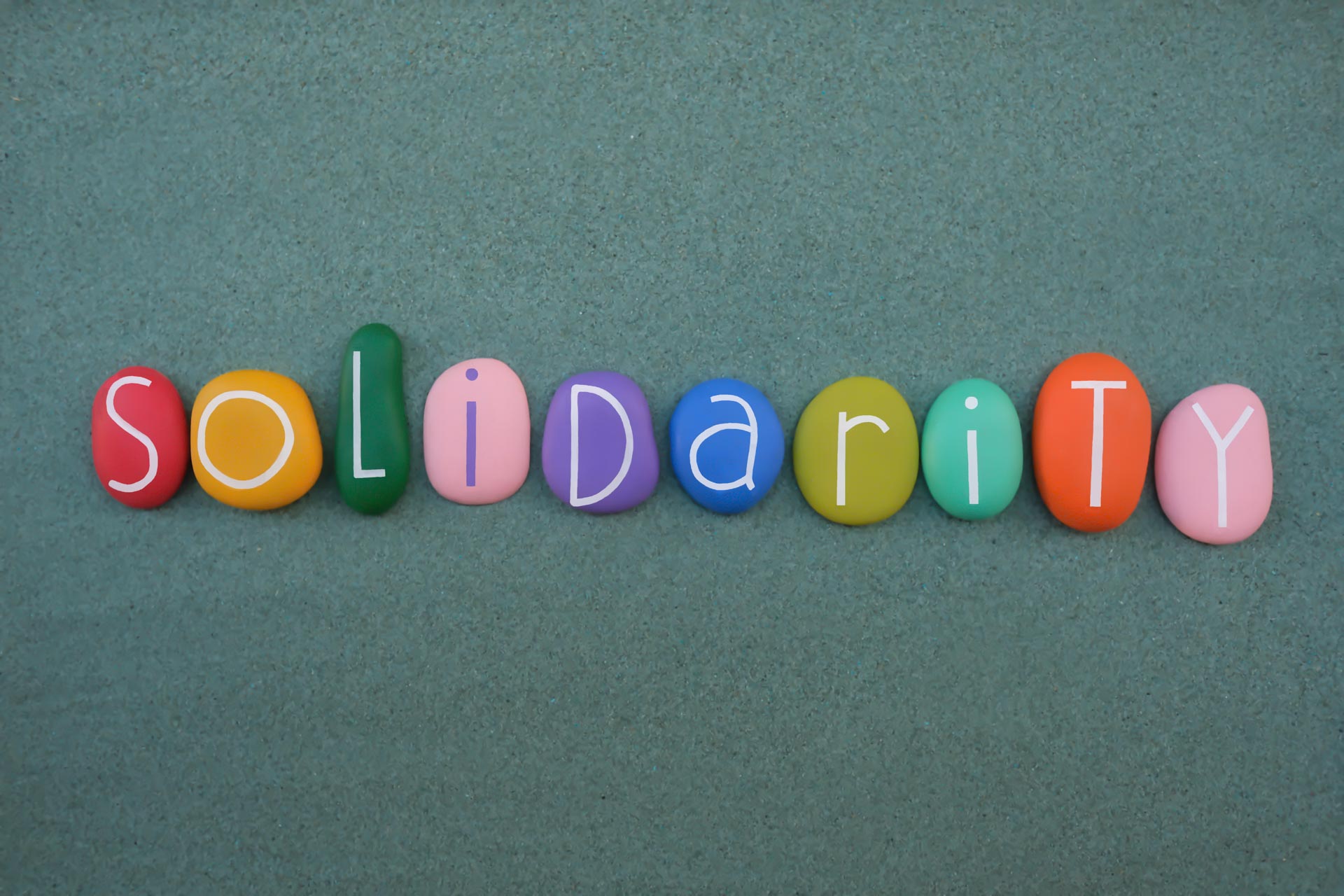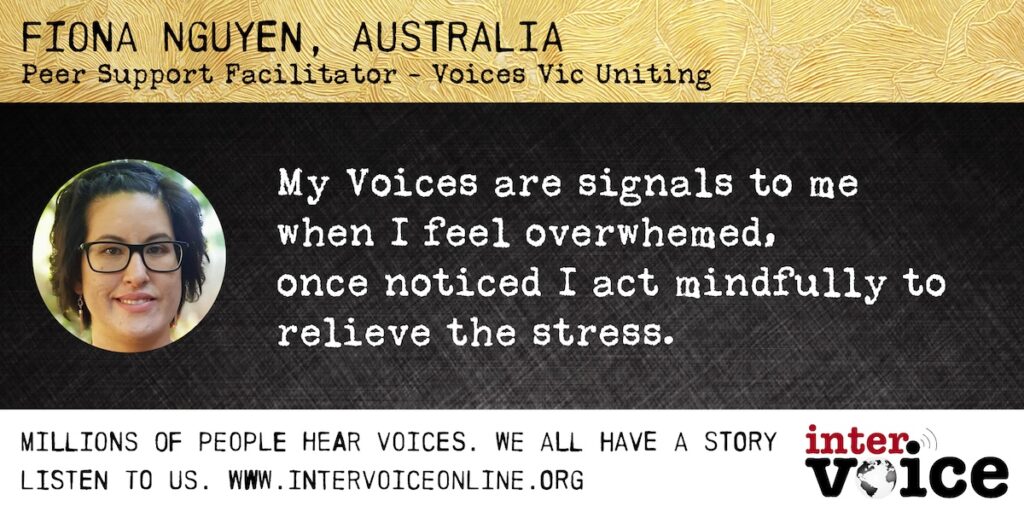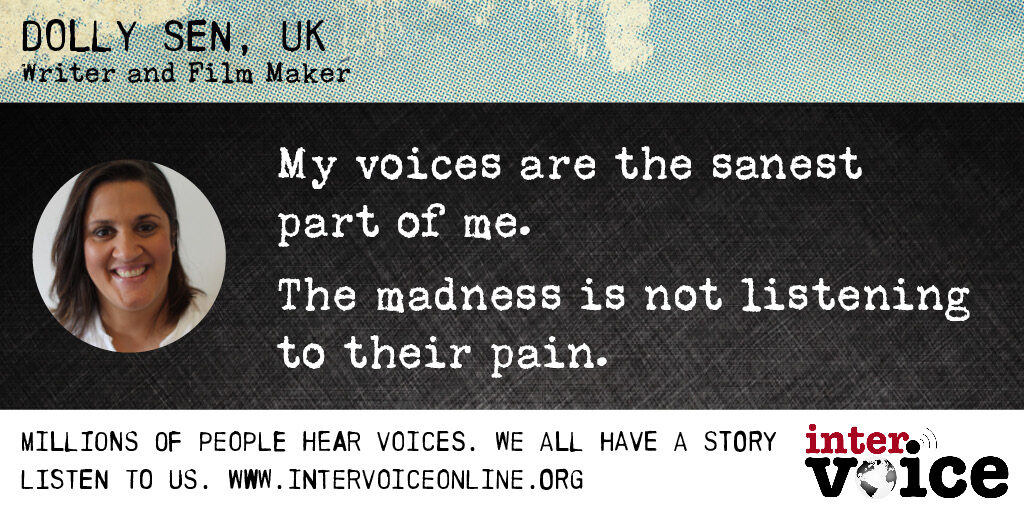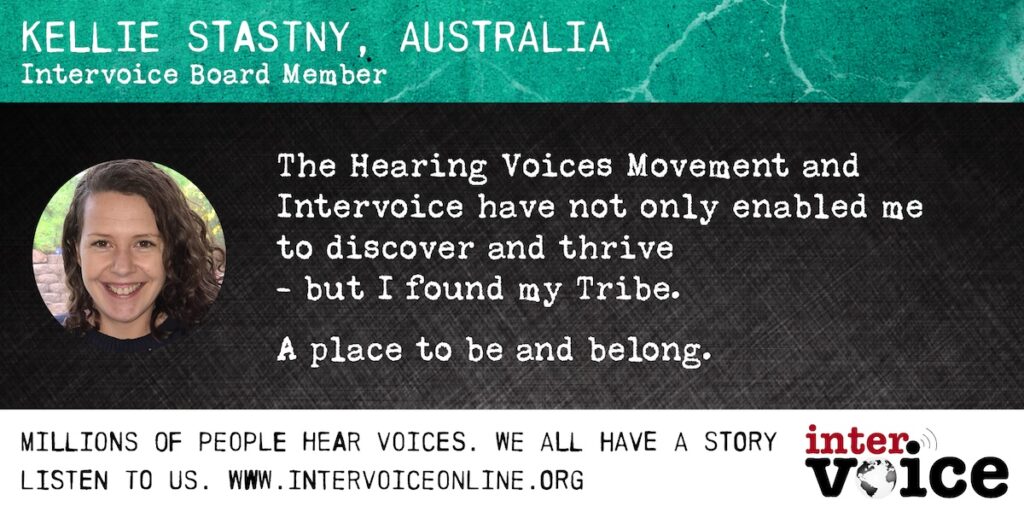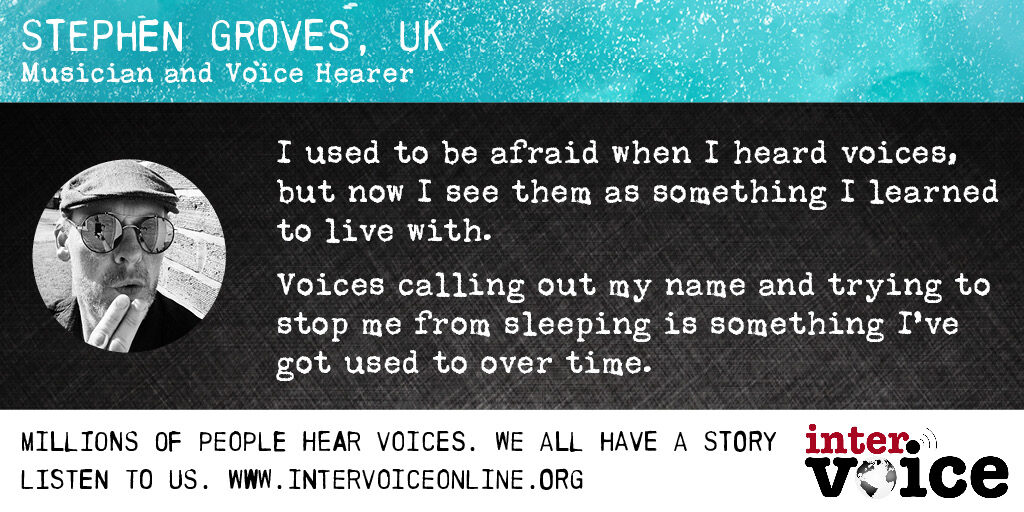Hearing voices in itself is not a symptom of an illness
Hearing Voices is apparent in 2 – 4 % of the population. One in three becomes a psychiatric patient – but two in three can cope well and are in no need of psychiatric care and no diagnosis can be given because 2/3 are quite healthy and well functioning.
There are in our society more people hearing voices who never became psychiatric patients than there are people who hear voices and become psychiatric patients.
The difference between patients hearing voices, and non-patients hearing voices, is their relationship with the voices. Those who never became patients accepted their voices and use them as advisers.
In patients, however, voices are not accepted and seen as evil-messengers.
Don’t kill the messenger
They are messengers and they have a message. They are related to sincere problems that occurred in the person’s life and they tell us about those problems. Therefore it is not wise to kill the messenger. Instead of not-listening to the message we should look how to help and sustain the person in solving their problems. (It is like it has been in many wars and conflicts in ancient times already, where the messengers were killed when a message was not welcome).
Research shows also that hearing voices in itself is not related to the illness of schizophrenia. In population research only 16% of the whole group of voice hearers can be diagnosed with schizophrenia.
Also, therefore, it is not right to identify hearing voices as an illness. Psychiatry in our western culture, however, tends unjustly to identify hearing voices with schizophrenia. Going to a psychiatrist with hearing voices gives you an 80% chance of getting a diagnosis of schizophrenia.
However, when you identify hearing voices with illness and try to kill the voices with neuroleptic medication, you just miss the personal problems that lay at the roots of hearing voices – and you will not help the person solving those problems. You just make a chronic patient.
Handicap
Many patients rightly realize that their experience of hearing voices is wrongly interpreted as a symptom of an illness of schizophrenia. Many patients also rightly feel that it is a handicap that they are not allowed to talk about their voices in psychiatry on fully unjustified grounds.
Many patients also are unjustly treated with high doses of neuroleptics which becomes a drawback to their development and their possibility to take their lives in their own hands.
Therefore many voice hearers are glad that there is an opportunity created by the National Hearing Voices Network, where their experience is recognized and accepted as real. Where the possibilities are available to talk about this experience and be appreciated for it.
Groups
In these groups of voice hearers people can learn form each-other about coping with their voices and they can support each other in their battle to stop being discriminated against. I do not deny that there exists a pattern of behaviour and experience that can be categorized as “schizophrenia.
The question, however, is how this pattern of behaviour and experience has developed in the diagnosed individual. We know quite a few people who, when they first heard voices, were not able to cope with their voices and developed a range of secondary reactions that mimic the whole range of schizophrenic behaviour and therefore were diagnosed as such.
But when they started to listen to their voices and recognise their problems and were able to learn to cope with their problems they were also able to cope with their voices and the full range of reactions diminished or vanished.
Help
Therefore everyone who hears voices and has troubles with them, should be given the opportunity to assess the relationship of the voices. Their life experiences should be assessed for the reasons for hearing voices, before they become diagnosed and are treated for an illness instead of being helped with their problems.
The negative attitude of our society and our psychiatric services towards hearing voices and schizophrenia should be scrutinized. As long as that is not the case HVN offers a unique opportunity for voice hearers to scrutinize their own victim status and help each other to overcome the negative attitude of the society the consequences of discrimination related to it.
Prognosis
The prognosis of hearing voices is more positive than generally is perceived. In Sandra Escher’s research with children hearing voices she followed 82 children over a period of four years. In that period 64% of the children’s voices disappeared congruently with learning to cope with emotions and becoming less stressed.
In children with whom the voices were psychiatrised and made a part of an illness and not given proper attention, voices did not vanish, but became worse, the development of those children was delayed.
Normalising the experience within the family was of help to children and parents who became able to support the child with existing problems. While the illness concept estranges parents and children, makes them afraid and introduces a fatal outlook on the future of a life-time illness.
Therefore the HVN is of such importance and should expand its activities in training professionals to react differently with voices and voice hearers to support each-other instead of deny their experience and try to kill it. To develop actions that will end the social taboo.
As long as there exist a social taboo against voices psychiatry will keep up his role as custodian of this taboo. Because that is what psychiatry is set up for, to watch over societies interests in mental health affairs. In itself this is an adequate role when it is done rightly and effectively, which is at the moment not the case as far as voice hearing is concerned.
The social taboo however will change if the uniting of people hearing voices becomes strong enough as a democratic force to realize that change, as has been the case with the gay movement. Therefore it is good that there are not only national networks, but that there will be more international co-operation’s between the different countries in which the movement is developing.


